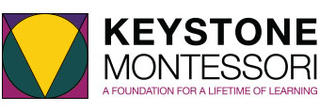Parent Education
Montessori Parenting Video Series
Growing Your Home To Include More Nature with Sarah Sallade
Freedom Within Limits with Katie Padiak
The Case For Peaceful Parenting with Kiva Schuler
Observation: How To Really Know Your Child with Claudia Mann
How Much Independence Does Your Teen Actually Need with Susan Holmes-Glazier
Montessori For Every Family: A Practical Parenting Guide with Tim Seldin and Lorna McGrath
Raising Emotionally Intelligent Children with Lorena Seidel
Articles & Links
- A Montessori Approach to Toileting – Michael Olaf
- Age Appropriate Chore Chart for Montessori Children
- Characteristics of the 2nd Plane Child
- ‘Children Succeed’ With Character, Not Test Scores – NPR
- Does Your Playroom Need A Makeover?- New York Times
- Elementary Book List – Suggested books to read aloud to your elementary-aged child
- Five Reasons to Stop Saying “Good Job!” – Alfie Kohn
- Gateway Parenting – Wendy Calise
- Helping Your Child Learn to Manage Anger – Dr. Laura Markham
- Kids in the Kitchen – Positive Parenting
- Link to Research Studies on Montessori Education
- Technology in the Montessori Classroom – Greg MacDonald
- The Technology Screen – John Long, Silvana Q. Montanaro, M.D., and Jane M. Healy, Ph.D.
- Unsolicited Evaluation is the Enemy of Creativity – Peter Gray, Ph.D.
- What Do Babies Think – TED Talk by Alison Gopnik
- What Research Says About Montessori and Student Outcomes
Books
- Children: The Challenge - by Rudolf Dreikurs, Vicki Soltz
- From Childhood to Adolescence - Maria Montessori
- How to Raise an Amazing Child the Montessori Way - Tim Seldin
- Montessori: The Science Behind the Genius - Angeline S. Lillard, PhD
- Montessori Madness: A Parent to Parent Arguement for Montessori Education - Trevor Eissler
- Parenting From the Inside Out - Daniel J. Siegel, Mary Hartzell
- To Educate the Human Potential – Maria Montessori
- Toilet Awareness – Sarah Moudry (a good read for toilet learning)
- The Montessori Toddler - Simone Davies

